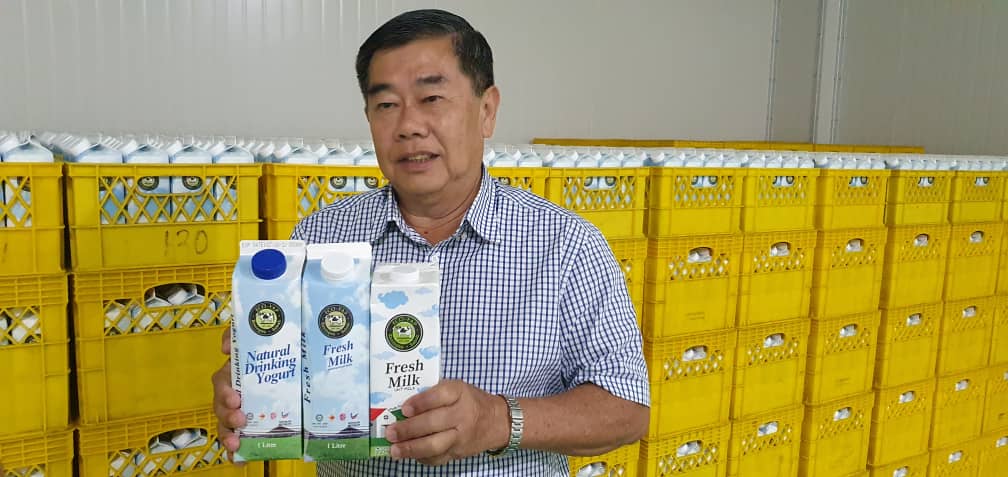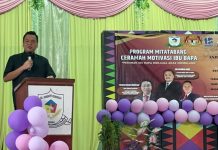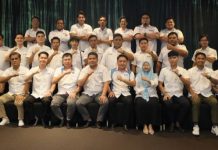KOTA KINABALU: There is a need for concerted efforts between policy makers, related government agencies and food production participants to ensure food sufficiency within Sabah and the country as a whole.
Datuk Yap Yun Fook, one of Asia’s most prominent agricultural entrepreneurs said concentrated and integrated efforts have to be made by the relevant authorities to ensure that there is no caveat in the delivery of services, farming tools, machineries as well as related items, such as fertilisers to food production participants.
He quote an example where paddy planting is under the purview of the Agriculture Department which allows unlimited ploughing of cultivation area after a previous policy is revamped.
“However, there are for entities that governs the planting and production. Ploughing is under Agriculture Department, while fertiliser subsidies are under Persatuan Peladang. They will only subsidise 10 hectares of cultivation area and so if a farmer cultivated more than that, lets say 29 hectares, they will have to bear the cost. Paddy claims from BERNAS (Beras Nasional) is only for two hectares. Water (for irrigation) is under the Water Department .”
“To ensure that paddy farmers can meet the country’s food demand, these policies have to be changed according to the present needs. We can be self-sufficient, if only we have the right policy in place. We are proud to have a Sabahan Minister, Datuk Ronald Kiandee as Minister of Agriculture and Food Industries of Malaysia. We hope he listens to our problem and resolved it accordingly.”
He also believed that the 40 thousand hectares of land for paddy planting in Sabah should be utilised fully to ensure against food shortages and decrease the import expenses of rice among other food items.
“Paddy planting in this time where there are machineries for planting and harvesting among others can be carried out three times a year since maturity to harvesting only takes 95 days. They however can plant other crops in between paddy planting, such as maize and soya.”
“Maize can be used as fodder after the grains are harvested, while soya is food as well,” he said adding that alternate crop planting is good for the soil.
According to him, the country can be self sufficient within five years, if they implemented it fully, efficiently and without caveat creating policies.
He stressed that farming should be carried out in a large scale to ensure viability; creating an industry that will help the people in the long run, while ensuring that the country is self sufficient and no longer dependent on countries like Vietnam and Thailand for rice.
He reiterated that there are a lot of vacant unattended land in the State, even along roadsides where fertile land stand idle.
Datuk Yap, who is active in agriculture with livestock and fisheries with farms in Bomboi, Ansip in Keningau and Lok Kawi, believes that there is a lot of room for improvement in the food production industry.
Some 40 years ago, he started with just two cows and he has worked hard to grow from this humble beginning. With himself as example, he firmly believes that others too can achieve their goal, with similar motivations.
“However, the relevant authorities must ensure that the farmers have a big track of land so that their initial stock starts at 1000 at least. This can allow them to be competitive and acquire milking machines and chillers, among others. Focus should be on this industry players. Farmers should not be accorded just ten or twenty cows, as its not viable,” he said.
Even though he owns 5000 of cows he feels that the 150 hectares of land was not spacious enough for them.
In 2014, he established a fresh milk processing factory at Lok Kawi at the cost of RM 59 millions and with this establishment, it will meet local demands.
Import cost is high he shared adding that the government is importing powdered milk that is later mixed with water, and labelled as full cream milk, while they should be concentrating on building up the industry, and acquire healthy fresh milk.
He urged the relevant authorities to look into reviewing and updating outdated policies that impedes the food industry development and allow for its growth within the country, curtailing food import that will benefit the country and the people as a whole.-BNN






